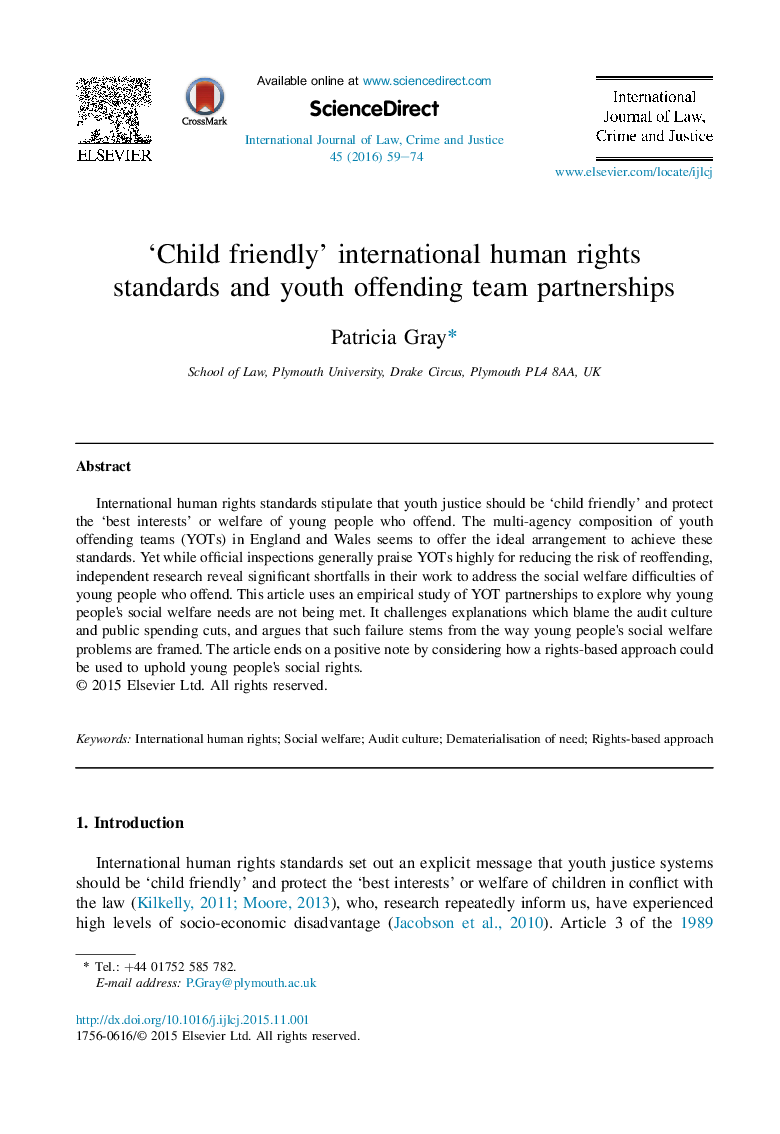| Article ID | Journal | Published Year | Pages | File Type |
|---|---|---|---|---|
| 1097809 | International Journal of Law, Crime and Justice | 2016 | 16 Pages |
International human rights standards stipulate that youth justice should be ‘child friendly’ and protect the ‘best interests’ or welfare of young people who offend. The multi-agency composition of youth offending teams (YOTs) in England and Wales seems to offer the ideal arrangement to achieve these standards. Yet while official inspections generally praise YOTs highly for reducing the risk of reoffending, independent research reveal significant shortfalls in their work to address the social welfare difficulties of young people who offend. This article uses an empirical study of YOT partnerships to explore why young people's social welfare needs are not being met. It challenges explanations which blame the audit culture and public spending cuts, and argues that such failure stems from the way young people's social welfare problems are framed. The article ends on a positive note by considering how a rights-based approach could be used to uphold young people's social rights.
